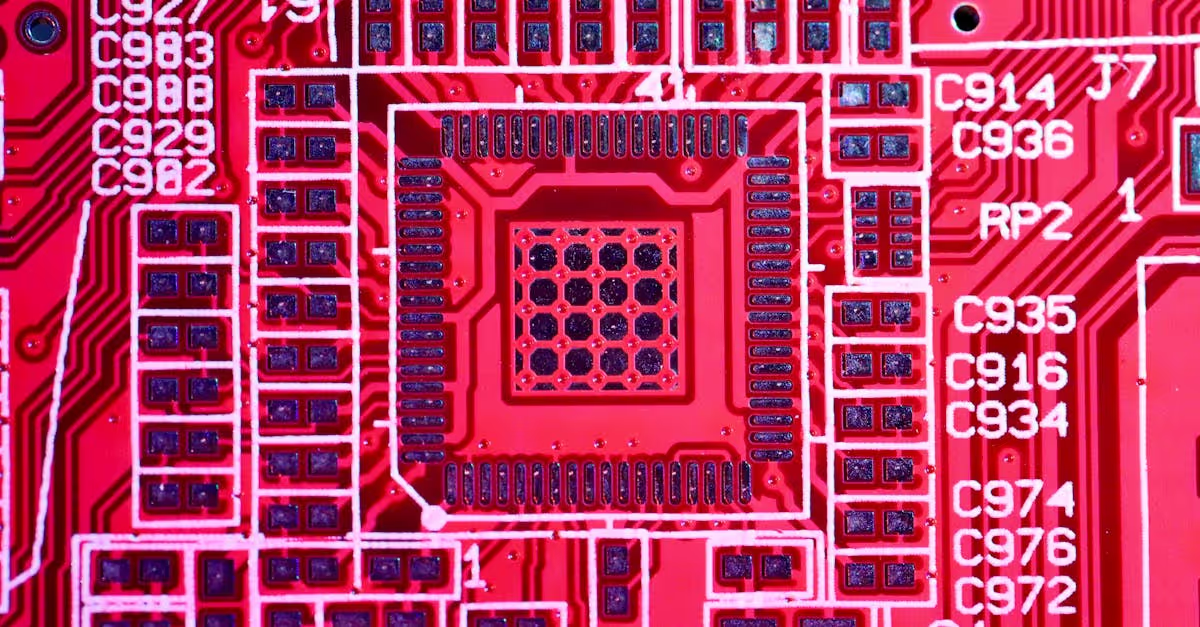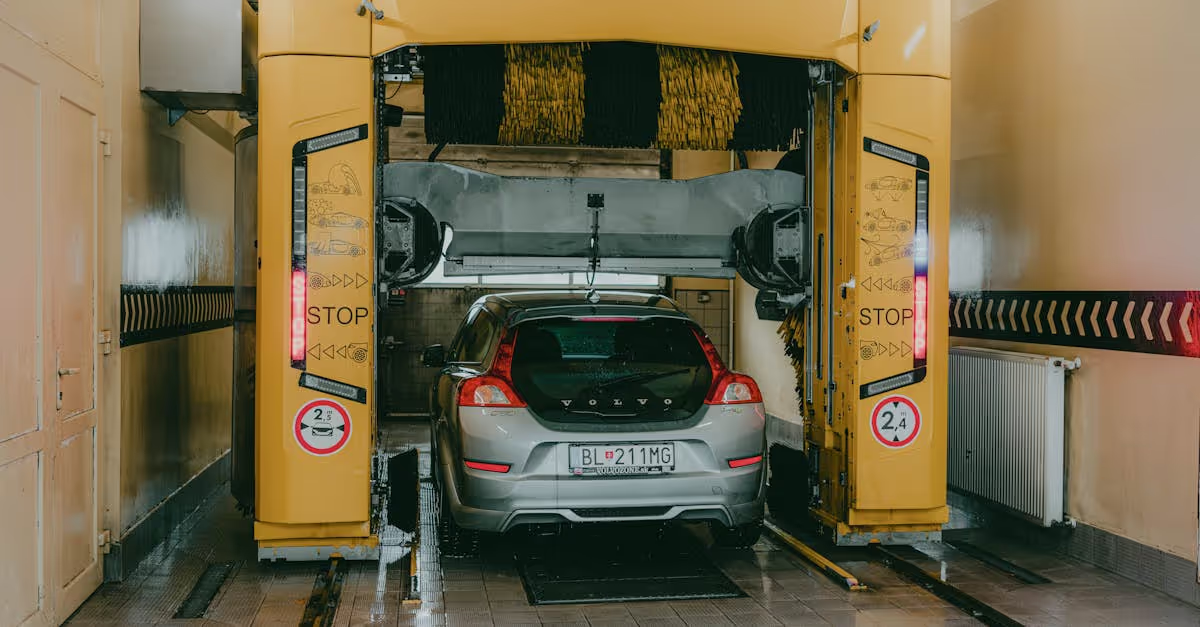Key Takeaways
- Types of Pool Heaters: Understand the three main types of pool heaters—gas, electric, and solar—each offering unique advantages depending on heating speed, cost, and environmental impact.
- Installation Insights: Familiarize yourself with the installation processes for each heater type, including location considerations, necessary connections, and requirements for efficient setup.
- Maintenance is Key: Regular maintenance, including checking for leaks, cleaning filters, and inspecting electrical components, is essential for optimizing heater performance and longevity.
- Check Compatibility: Assess your local energy sources and climate conditions to choose a heater that complements your swimming habits and budget effectively.
- Community Knowledge: Leverage the experiences of fellow pool owners to gain valuable insights about heater preferences and tips for installation and maintenance.
As summer approaches and temperatures rise, many of us dream of enjoying our pools year-round. Did you know that nearly 60% of pool owners consider installing a heater to extend their swimming season? With options like gas, electric, and solar heaters available, choosing the right one can seem overwhelming.
In this guide, we’ll break down the installation process for each type of heater, helping you make an informed decision. Whether you want the quick heating of gas, the efficiency of electric, or the eco-friendliness of solar, we’ve got you covered. Let’s dive into the world of pool heaters and discover how to keep our pools warm and inviting, no matter the season.
Overview of Pool Heaters
Pool heaters play a crucial role in making our swimming experiences enjoyable throughout the year. The variety of options available—gas, electric, and solar—accommodates different preferences and needs. Each type offers unique benefits, catering to various heating speeds, efficiency levels, and environmental considerations.
Gas Pool Heaters
Gas pool heaters are known for rapid heating capabilities. These units can raise water temperatures quickly, making them ideal for homeowners who enjoy spontaneous swims. However, gas heaters require a natural gas line or propane tank, so installation might take a bit longer. Maintenance tends to be straightforward, but checking for leaks regularly is essential for safety and efficiency.
Electric Pool Heaters
Electric pool heaters provide an energy-efficient solution for warmer climates. While they heat water slower than gas options, they are often less expensive to operate in the long run. Electric heaters utilize electrical resistance to generate warmth, making them a consistent heating choice. Installation involves connecting to a standard electrical outlet, making it relatively simple.
Solar Pool Heaters
Solar pool heaters rely on renewable energy, making them the eco-friendliest option. They utilize solar panels to capture sunlight, translating that energy into heat for our pools. While initial costs can be higher, the long-term savings on energy bills can be significant. It’s essential to position the panels effectively and check for debris that might block sunlight, maximizing efficiency.
Key Considerations
When selecting a pool heater, we evaluate our needs based on factors such as budget, available energy sources, and the local climate. Knowing the typical swimming season length, we decide which heater aligns best with our preferences. For example, gas heaters provide quick, immediate warmth but might lead to higher operating costs in the long run, while solar panels offer a sustainable solution but depend on consistent sunshine.
Installation Tips
Installing any pool heater generally follows a few common steps. We start by determining the location—proximity to power or gas lines and optimal sunlight exposure for solar models is vital. We then prepare the pad or stand for the unit, ensuring it’s stable. Following that, we connect the plumbing, wiring, or gas lines according to each model's specific requirements. Understanding the details of these installations can prevent future headaches.
Community Insight
Have you ever jumped into a pool that felt like ice water during spring? We can relate! Warm waters can turn an awkward dive into a joyful splash. As part of a community of pool owners, sharing experiences helps us learn from one another. We can ask each other questions about which heater works best under our circumstances.
By exploring the different types of pool heaters and their specific benefits, we can create a comfortable swimming environment that everyone in our family will enjoy. Whether it's a weekend barbecue or an early morning swim, having the right heater makes all the difference.
Types of Pool Heaters
Understanding the different types of pool heaters is crucial for making an informed choice. We explore gas, electric, and solar options, each offering unique benefits for various swimming needs.
Gas Pool Heaters
Gas pool heaters provide rapid heating capabilities. With the ability to heat water in a matter of hours, they're perfect for those spontaneous weekend pool parties. Installation involves several key steps:
- Location: Select a space that allows adequate access and has a firm base. Concrete pads, pavers, or wood decking work well.
- Gas Supply: Connect the gas line using appropriate connectors and Teflon tape for a secure seal.
- Plumbing Connections: Use PVC pipes to connect inlet and outlet. The filter water line goes to the heater inlet, while the discharge line connects to the pool.
- Electrical Connections: Though primarily gas-powered, check electrical components for controls and safety.
Choosing gas offers a powerful solution for immediate heat.
Electric Pool Heaters
Electric pool heaters offer an energy-efficient option. They may take longer to heat a pool but use electricity rather than gas. This feature is beneficial in warmer climates with longer swim seasons. Here’s how to install one efficiently:
- Location: Place the heater in a shaded area to reduce heat loss.
- Electrical Connection: Connect the heater to a dedicated circuit. Use a qualified electrician to handle this step for safety.
- Water Connections: Similar to gas heaters, use PVC for the plumbing. Attach the heater inlet to the filter and connect the discharge line to the pool.
Electric heaters balance cost and efficiency. For many, that makes them a wise choice.
Solar Pool Heaters
Solar pool heaters represent an eco-friendly choice. By using the sun’s energy, they provide an environmentally conscious way to extend the swimming season. Installation steps focus on maximizing sunlight exposure:
- Location: Install solar panels in an area with direct sun and minimal shading.
- Piping Connections: Use polyethylene piping connected to the filter. Ensure a proper water flow to and from the solar panels.
- Controller Installation: Include a solar controller to regulate the system. This component ensures efficient heating and minimal water waste.
Solar heaters can have higher initial costs but lower long-term operating costs. They support sustainable energy practices while keeping pools warm.
Installation Considerations
Installing pool heaters requires thoughtful planning and attention to detail. We must consider factors like location, space, and electrical or gas connections.
Location and Space Requirements
Choosing a suitable location for the pool heater is crucial. A clear, level area free of debris makes installation easier. For gas and electric heaters, leaving at least 18 inches of clearance above the unit promotes proper airflow and prevents issues like corrosion.
A common mistake is blocking equipment, such as filters or pumps. We should maintain enough space around the heater for access and maintenance. This might mean ensuring the heater's placement won’t obstruct any essential components like the electrical junction box or gas line connections.
Electrical and Gas Connections
Electric pool heaters often simplify the installation process. They connect directly to the electrical panel, which can make them appealing for those wanting a quick setup. It's essential to use appropriate wire connectors when making these connections.
For gas heaters, we need to establish secure gas supply lines first. Leak checks are vital to avoid any mishaps. Safely routing the lines ensures trouble-free operation.
The commitment to quality connections can extend the heater's lifespan and efficiency. Let’s work together to create a safe setup that keeps our pools warm and inviting. What's your go-to installation tip?
Maintenance Tips for Pool Heaters
Maintaining pool heaters is critical for prolonging their lifespan and ensuring optimal performance. Regular checks and servicing help keep everything running smoothly.
Gas Pool Heaters
- Inspect Connections: We regularly check gas line connections for leaks. Using soapy water works well—bubbles signal a leak. Safety first!
- Clean Filters: We clean or replace filters at least once a month. Dirty filters decrease efficiency, making our heater work harder and increasing costs.
- Check Pressure: Maintain ideal gas pressure levels for optimum performance. Low pressure can lead to insufficient heating.
Electric Pool Heaters
- Monitor Electrical Components: We inspect electrical connections yearly. Loose wires can pose safety hazards and reduce heater efficiency.
- Clear Dust and Debris: Keeping the heater exterior clean is essential. Dust and debris can obstruct airflow and efficiency.
- Test Safety Features: Regularly test safety components, like the high-limit switch, to confirm they function correctly. This helps prevent overheating and damages.
Solar Pool Heaters
- Inspect Collectors: We check solar collectors for dirt and debris. Keeping them clean maximizes sunlight absorption, enhancing our heating capacity.
- Look for Leaks: Water leaks in the system can lead to energy loss. We inspect joints and connections to detect any issues early.
- Flush the System: Flushing the system once a season removes mineral buildup, ensuring an efficient heating process.
General Maintenance Tips
- Schedule Regular Checkups: We schedule professional inspections once a year. These checkups catch problems before they escalate.
- Monitor Water Chemistry: Proper water chemistry reduces wear on heaters and prevents corrosion. Testing the levels weekly is a simple but effective step.
- Stay Informed: Engaging with fellow pool owners can be beneficial. Sharing maintenance experiences enhances our knowledge base.
Done diligently, maintenance procedures can prevent unexpected breakdowns and costly repairs. We all know that maintaining the equipment takes dedication, but the rewards of a comfortably warm pool make it worthwhile.
Conclusion
Choosing the right pool heater can transform our swimming experience by extending the season and enhancing comfort. Whether we opt for gas, electric, or solar heating solutions, understanding our needs and local conditions is key to making an informed decision.
With careful planning and proper installation, we can ensure that our heaters operate efficiently and effectively. Regular maintenance will keep our systems running smoothly, allowing us to enjoy our pools year-round.
By engaging with fellow pool owners and sharing insights, we can further refine our choices and enjoy the benefits of a well-heated pool. Let’s make the most of our investment and create the perfect swimming environment for ourselves and our families.
Frequently Asked Questions
What are the benefits of installing a pool heater?
Installing a pool heater allows you to extend your swimming season, enabling enjoyable swims even in cooler months. It enhances comfort, promotes family and friend gatherings, and can increase property value. With features like gas, electric, or solar options, you can choose based on your needs and preferences.
What types of pool heaters are available?
There are three main types of pool heaters: gas heaters, electric heaters, and solar heaters. Gas heaters heat water quickly, making them ideal for spontaneous swims. Electric heaters are energy-efficient for warmer climates but heat slower. Solar heaters are eco-friendly, using renewable energy but may involve higher upfront costs.
How do I choose the right pool heater?
To choose the right pool heater, consider your budget, energy source availability, local climate, and heating speed preferences. Evaluate the pros and cons of gas, electric, and solar heaters to find which fits your lifestyle and maintenance capabilities best.
What installation tips should I follow for pool heaters?
For installation, select a suitable location with good airflow, safe electrical and gas connections, and accessible maintenance areas. Ensure you’ve properly connected plumbing and equipment while avoiding obstructions. This careful planning helps ensure efficiency and longevity in your pool heater's performance.
How can I maintain my pool heater?
Regular maintenance is essential for prolonged heater lifespan. For gas heaters, check connections for leaks and clean filters monthly. Electric heaters require monitoring of electrical components and clearing debris. Solar heaters need seasonal system flushing and leak inspections. Scheduling professional inspections can help keep everything in top shape.
How do I engage with other pool owners about heater solutions?
Engaging with fellow pool owners can be as simple as joining local pool-focused forums, social media groups, or community clubs. Share experiences, tips, and recommendations regarding different heating solutions, which can help you discover other effective practices and foster a supportive pool community.






